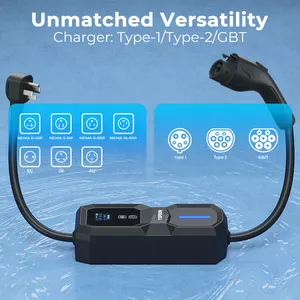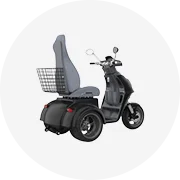Understanding Electric Vehicles
Electric vehicles (EVs) are propelled by electric motors, drawing power from rechargeable batteries. They cater to individuals and enterprises seeking an eco-friendlier mode of transport than traditional petrol-driven cars. EVs harness electric propulsion, transforming electrical energy into the mechanical force required for motion.
Electric vehicles are lauded for their environmental credentials. Absent internal combustion engines, they emit no exhaust pollutants, thereby diminishing air contamination and the greenhouse gases that exacerbate global warming. This is particularly beneficial in cities plagued by poor air quality and congestion. Moreover, EVs boast lower operational costs, attributable to cheaper electricity and fewer maintenance demands, thanks to their less complex electric drivetrains.
For those in the business of manufacturing or retailing EVs, a thorough grasp of the vehicles' components and technologies is vital for commercial triumph. From the variety of batteries to the charging ecosystem, each element contributes to the vehicles' functionality and allure. Consequently, companies often invest in EVs to cater to eco-aware consumers or to fulfill corporate environmental objectives.
Varieties of Electric Vehicles
The EV market is diverse, spanning from compact cars to robust trucks, each fulfilling distinct roles across the transport sector:
-
Battery Electric Vehicles (BEVs): Purely electric, BEVs run on rechargeable batteries without emitting pollutants, making them suitable for personal and growingly for commercial use.
-
Plug-in Hybrid Electric Vehicles (PHEVs): Combining electric motors with conventional engines, PHEVs can be recharged and operate solely on electricity for limited distances. Their dual power sources make them adaptable for drivers requiring extended range.
-
Hybrid Electric Vehicles (HEVs): HEVs merge electric propulsion with internal combustion engines to enhance fuel economy. Renowned for their silent operation, they are utilized in various models, including sedans and SUVs.
-
Fuel Cell Electric Vehicles (FCEVs): Though rarer, FCEVs generate electricity on board via hydrogen fuel cells, emitting only water vapor and heat, and are used in areas where long range and rapid refueling are paramount.
-
Solar-Powered Electric Vehicles: These experimental vehicles use solar cells to power electric motors. Despite their limited range, they represent a clean energy approach to automotive power.
Selecting Electric Vehicles
In choosing EVs for business use, several considerations must be weighed to ensure the vehicle meets operational demands and delivers anticipated advantages. Here are key factors:
-
Vehicle Type: Deciding between a standard, plug-in hybrid, or fully electric model should be based on typical driving habits and charging infrastructure access.
-
Battery Capacity: For urban enterprises with shorter commutes, a PHEV may be most practical, while a BEV could suit businesses with consistent daily travel distances.
-
Charging Options: Charging station availability is crucial when selecting an EV. Certain models provide rapid charging, essential for businesses needing swift vehicle turnaround.
-
Tax Incentives: Regional tax benefits or incentives could render EV purchases more economically attractive.
-
Range: A vehicle's range is critical for route planning and should include a margin for unforeseen detours.
-
Performance Specifications: Not all businesses require high-performance EVs; it's important to align the vehicle's capabilities with operational requirements.
Companies should also explore vehicle features like cargo space, cabin design, maintenance needs, and additional features such as cruise control when considering an EV acquisition.
Electric Vehicles on Alibaba.com
Alibaba.com is a premier global marketplace that connects businesses with an extensive array of electric vehicles for diverse commercial needs. From fleets of urban delivery vans to high-performance electric bikes for logistics, Alibaba.com provides a broad selection from certified global suppliers. The platform's dedication to enabling international trade positions it as an excellent resource for businesses looking to scale or transition to greener transport solutions.
On Alibaba.com, one can find vehicles with advanced features like long-range lithium batteries and rapid charging capabilities. The platform also offers sustainable options such as electric scooters and rickshaws, which can help lower operational costs and support environmental conservation.
Alibaba.com's Trade Assurance service guarantees transaction security until delivery completion, offering confidence when sourcing EVs from overseas suppliers. With an intuitive interface and mobile compatibility, Alibaba.com simplifies supplier communication in your local language and efficient order management. This holistic service makes Alibaba.com a valuable ally for enterprises seeking to adopt electric mobility and maintain a competitive edge.
Common FAQs for Electric Vehicles
What is the typical range of an Electric Vehicle (EV)?
EV ranges vary with battery size, from around 100 miles for smaller models to over 300 miles for those with extended range, influencing vehicle utility and consumer appeal.
How long does it take to charge an Electric Vehicle?
Charging durations for EVs differ based on battery capacity and charger type, ranging from under an hour at rapid charging stations to several hours with home chargers.
Can Electric Vehicles be charged in the rain or snow?
Electric Vehicles can be charged in various climatic conditions, provided the charging equipment and vehicles are adequately insulated and waterproof, which is typically the case.
Are Electric Vehicles more expensive to maintain than traditional cars?
EVs generally incur lower maintenance costs due to fewer mechanical parts, regenerative braking systems, and the absence of oil changes, though battery replacement costs should be factored in over the vehicle's lifespan.
How do I determine the right Electric Vehicle for my business needs?
Assess daily driving patterns, customer preferences, and specific needs such as cargo capacity or towing capabilities. Different EV models offer varied performance, range, and features that should correspond with your business objectives.
What types of batteries are used in Electric Vehicles?
Lithium-ion (Li-ion) and lithium-polymer batteries are prevalent in EVs due to their high energy density and longevity.
Can Electric Vehicles be charged at home or only at designated stations?
Many EVs are designed for home charging using standard outlets, though some may necessitate a dedicated home charging station for faster charging.
Is it possible to install a charging station at my business?
Businesses can install charging stations on their premises, ensuring the location has an adequate electrical supply to meet the station's power demands.
What should I look for in a quality Electric Vehicle charging station?
Seek charging stations that conform to industry standards, possess safety features like overcurrent protection, and provide the correct connection for your EV.
How does the Electric Vehicle tax credit work?
The Electric Vehicle tax credit is a federal incentive for businesses purchasing or leasing eligible EVs, with the amount varying by the vehicle's battery size and efficiency.
Can I provide my own Electric Vehicle charging station through a third-party vendor?
Third-party vendors offer EV charging solutions, including installation and setup. Ensure the station's compatibility with your EV model.
Are there any additional costs associated with operating Electric Vehicles that businesses should be aware of?
Consider costs like electricity, maintenance for the EV and charging infrastructure, and potential tax credits or incentives as part of the total cost of ownership.
How reliable are Electric Vehicles in cold weather?
EVs function in cold conditions, though their range may decrease due to higher battery usage for cabin heating. Preconditioning the vehicle while connected to the charger can alleviate this effect.
What is the expected lifespan of an Electric Vehicle's battery pack?
An EV's battery pack lifespan varies with use, climate, and maintenance, but typically a well-maintained pack lasts several years before replacement is necessary.
Do Electric Vehicles come with warranties similar to those for gasoline vehicles?
Many EVs include warranties for the battery pack and electric motor. Review the warranty details to ensure they satisfy your business requirements.
How does regenerative braking impact the driving experience in Electric Vehicles?
Regenerative braking extends an EV's range by recapturing energy during deceleration or coasting, and it often reduces brake system wear.










































 浙公网安备 33010002000092号
浙公网安备 33010002000092号 浙B2-20120091-4
浙B2-20120091-4